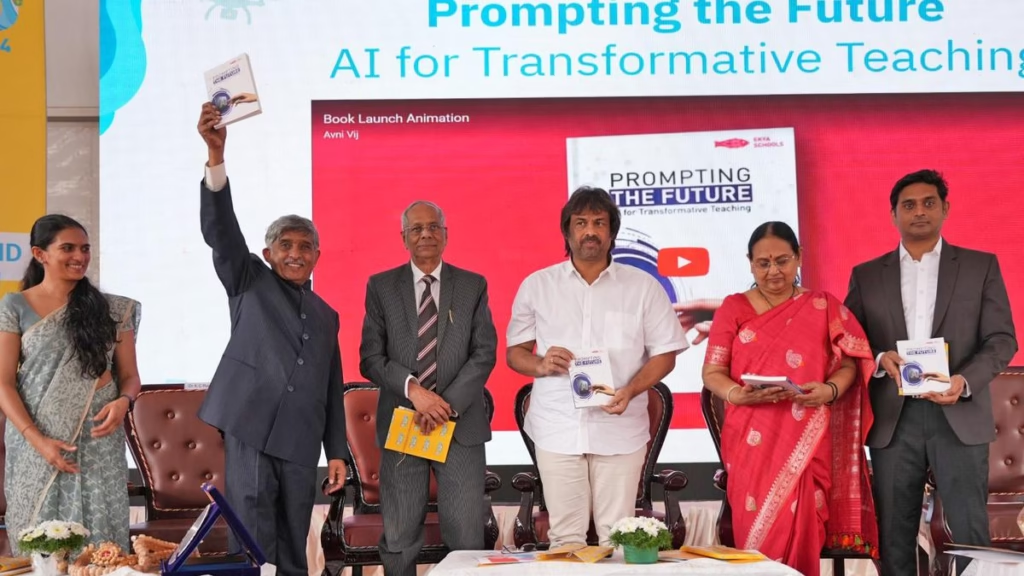In a world where change is the only constant, the key to preparing our youth lies in an education that does more than impart knowledge. It’s about fostering a mindset that embraces social entrepreneurship, blending enterprise skills with a sense of societal responsibility. This is not just education for employment; it’s education for transformation, where success is not solely defined by personal achievement but by the ability to positively impact the community and the world at large. By embracing this approach, we are not only equipping young minds with the tools to thrive in their professional endeavours but also nurturing their potential to be the driving force behind social innovation. Social entrepreneurship education extends beyond conventional classroom teachings. It’s about instilling in our students a sense of responsibility towards the societal challenges we face. Reports suggest that a significant portion of future jobs will demand enterprise skills. Our young minds, equipped with these skills, are not just preparing for employment; they are gearing up to be pioneers of change, to be the architects of a more compassionate, equitable world. Strategies for Integrating Social Entrepreneurship in Education Service Learning and Skills-Based Training: This strategy is about bringing the real world into the classroom. It’s not just teaching students how to raise funds or measure the impact of programs; it’s about immersing them in the very construction of social entrepreneurship. For instance, at Stanford’s Program on Social Entrepreneurship, students don’t just learn; they experience. They work alongside nonprofits, understanding the ground realities, the challenges, and the triumphs of making a tangible difference. Engagement with Real-World Problems: Schools must become arenas where students are not just passive receivers of knowledge but active participants in societal discourse. The COVID-19 pandemic highlighted this perfectly at Stanford. Their students, through StanfordVotes, innovatively shifted their voter outreach to digital platforms, incorporating voter registration into class enrollment and executing an Instagram campaign for tailored voting information, effectively transitioning from traditional in-person methods to online engagement. This approach fosters resilience, adaptability, and a problem-solving mindset – skills imperative in the uncertain world we live in. Integration Across Curriculum: Social entrepreneurship should not be confined within the walls of a business class. It should be a thread that weaves through various subjects, starting from the early years itself by nurturing curiosity and encouraging problem-solving. In my schools, the Service Learning Program embodies this approach. It enables students to engage with the community and develop civic skills by identifying causes to support with their teachers. This method integrates community service with education, reinforcing civic responsibility and community involvement. Collaboration with Practitioners: There’s a certain magic that happens when students interact with individuals who are out there, making a real difference. Hosting practitioners and having them share their journey, challenges, and success stories, opens up a world of possibilities for students. It bridges the gap between theory and practice, between learning and doing. Reflection and Sensitivity Training: Educators must cultivate a culture of reflection and sensitivity. It’s about making students aware of their positions, their privileges, and the larger world around them. Integrating this into the curriculum ensures that our students grow as empathetic, conscious individuals, aware of the nuances and complexities of societal issues. Continuous Learning and Progression: The journey of learning about social entrepreneurship should be continuous, evolving as students progress through their educational journey. This scaffolded learning ensures that by the time our students graduate, they have a deep, nuanced understanding of social entrepreneurship. Faculty Training: Lastly, for this integration of Social Entrepreneurship to be effective, our educators must be equipped. Faculty training is crucial. It’s about empowering them with the knowledge and tools to guide our students on this journey. In my years of experience in the education sector, I have witnessed the incredible potential that social entrepreneurship education holds. It’s about shaping not just successful professionals but compassionate, socially conscious individuals. By embedding these values and skills in our curriculum, we are not just preparing students for the job market; we are preparing them for life, for a journey of creating meaningful societal contributions. Integrating social entrepreneurship into education is essential for developing young minds capable of addressing tomorrow’s challenges. This approach emphasises the importance of empathy alongside enterprise. It guides students to realise that true success stems from their ability to drive positive societal change. As future leaders, innovators, creators, and changemakers, they will be distinguished by their intellectual acumen and compassionate hearts. They will be prepared to face real-life challenges and create paths that benefit everyone. This is the foundation of our educational philosophy, a philosophy that aims to create a legacy of positive, impactful, and enduring change.

